Google I/O, the much-anticipated annual developer conference, once again served as the epicenter for groundbreaking announcements, offering a comprehensive glimpse into Google’s technological roadmap for the year ahead and beyond.
Held on May 20-21, 2025, with attendees joining both in-person at the Shoreline Amphitheatre and virtually worldwide, the event powerfully underscored Google’s deepening commitment to Artificial Intelligence (AI), its seamless integration across their vast product ecosystem, and the continuous empowerment of developers with cutting-edge tools and capabilities.
- The Unstoppable Ascent of AI: Gemini Commands the Spotlight
- Android: Embracing XR, Adaptability, and Continuous Evolution
- Web and Cloud: Empowering the Developer Community
- Other Significant Announcements to Note
- Focusing on the Developer Experience
- Peering into the Horizon
- References
The Unstoppable Ascent of AI: Gemini Commands the Spotlight
It came as no surprise that Artificial Intelligence was the star of the show throughout I/O 2025. Google proudly showcased significant advancements and even broader integrations for its powerful Gemini family of AI models. Developers can now look forward to more potent and versatile AI tools, with Gemini 2.5 Pro notably highlighted for its remarkably improved reasoning and sophisticated coding assistance capabilities. The overarching message was crystal clear: making AI more accessible and profoundly useful for developers to craft intelligent, highly personalized, and increasingly agentic applications.
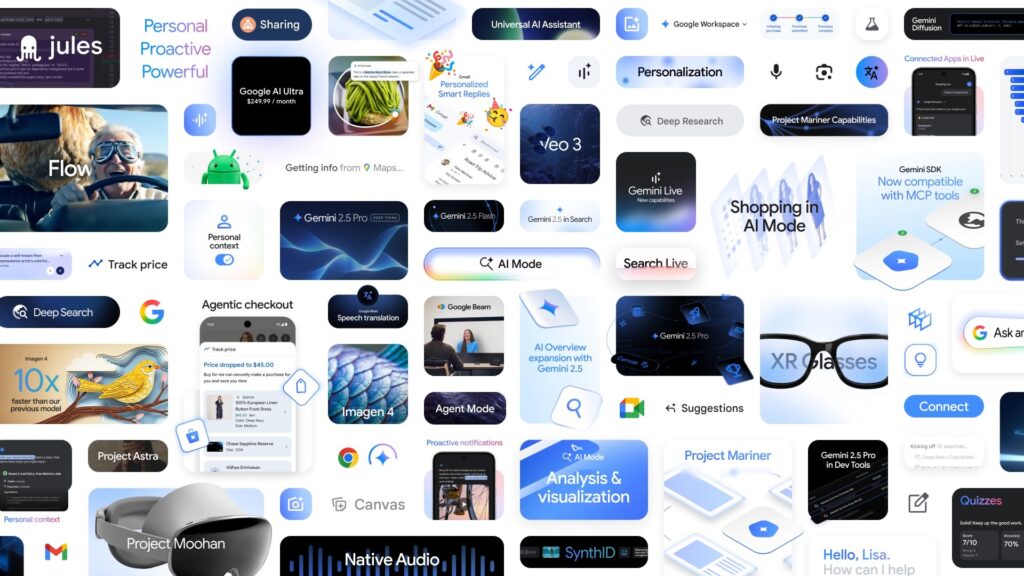
Key AI-centric revelations included:
- Gemini Powering Search: Google unveiled an innovative “AI Mode” in Search, designed to deliver more conversational and contextually aware search experiences. This advanced mode is engineered to tackle complex queries and furnish users with AI-generated overviews, and even dynamic visual results like custom charts.
- Revolutionizing Developer Tools: Exciting new ML Kit GenAI APIs, leveraging Gemini Nano for efficient on-device tasks such as summarization and proofreading, were introduced. Furthermore, Firebase AI Logic will empower developers to seamlessly integrate Google’s formidable generative AI models, including the more powerful Gemini Pro and Imagen, directly into their applications. The AI Edge Portal was also announced as a valuable resource to help developers rigorously test and benchmark their on-device models.
- Project Astra & the Dawn of Agentic AI: Google presented further compelling developments in Project Astra, their ambitious vision for a universal AI assistant. Demonstrations showcased its enhanced ability to understand complex context and proactively take action across a multitude of devices. Google also cast a spotlight on Project Mariner, a browser-based agentic AI displaying the capability to manage multiple tasks concurrently.
- The Generative Media Explosion: Attendees witnessed updates to an array of generative media tools, including the impressive Veo 3 for AI video generation and a novel AI filmmaking tool dubbed Flow.
- Gemini Live for All: Now available free for all users, Gemini Live enables natural language conversations with the AI assistant. It also allows the use of a phone camera for real-time information extraction and screen sharing, extending its utility to compatible iPhones.
- NotebookLM Gets Smarter: Google’s AI-powered note-taking application, NotebookLM, received significant upgrades, including the newly added capability to generate video summaries of documents.
- New Tiers for AI Access: Google introduced “AI Pro” and “AI Ultra” subscription plans, offering users access to even more advanced AI models and exclusive features.
Android: Embracing XR, Adaptability, and Continuous Evolution
While Artificial Intelligence understandably captured a significant portion of the limelight, Android remains a cornerstone platform for Google. With a dedicated “Android Show” event having already taken place prior to the main I/O conference, the focus during the main event shifted less towards core OS updates like Android 16 and more towards unveiling new user experiences and developer-focused tools.
Noteworthy Android highlights encompassed:
- The Rise of Android XR: Substantial updates were announced for Android XR, Google’s ambitious platform for extended reality experiences on headsets and smart glasses. This included the release of Developer Preview 2 for the Android XR SDK and news of an expanding ecosystem of compatible devices, with Samsung’s highly anticipated Project Moohan headset expected later in the year. The strategic integration of Gemini with Android XR aims to make these immersive devices more intuitive and significantly more powerful.
- The Imperative of Adaptive Experiences: Google strongly emphasized the critical importance of building applications that adapt fluidly and intelligently across a diverse array of screen sizes and form factors. This includes phones, innovative foldables, tablets, ChromeOS devices, automotive displays, and the emerging world of XR devices, collectively unlocking a vast ecosystem estimated at around 500 million screens.
- Introducing Material 3 Expressive: A vibrant new iteration of Google’s renowned design language, Material 3 Expressive, was introduced. It aims to provide richer, more personalized visuals and fluid motion for user interfaces across Android, Wear OS, and Google’s suite of applications.
- Wear OS 6 Steps Forward: The latest version of Wear OS was officially announced, prominently featuring the new Material 3 Expressive design language and introducing new Jetpack libraries to streamline development for wearables.
- Elevating In-Car Experiences: Google detailed expanded opportunities for developers in the rapidly evolving automotive space, including new Gemini integrations and robust support for a wider range of app categories.
Web and Cloud: Empowering the Developer Community
Google also rolled out a suite of updates designed to empower web and cloud developers, ensuring they have the tools needed to build robust and scalable solutions.
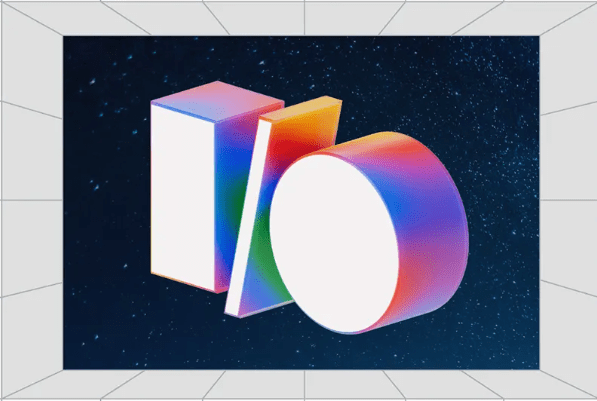
- Innovations for the Web Platform: Key announcements included new web UI features designed to enhance user experience, notable progress on Baseline for improved cross-browser compatibility, and the introduction of new built-in AI APIs utilizing Gemini Nano directly within Chrome, such as Summarizer, Language Detector, and Translator APIs.
- Cloud & Firebase Enhancements: Firebase received impactful updates, including the introduction of Firebase Studio, aimed at simplifying app setup, and Firebase AI Logic, for easier integration of generative AI. The overarching focus for cloud development remains firmly on enabling scalable, AI-powered application development and fostering improved, more efficient developer workflows.
Other Significant Announcements to Note
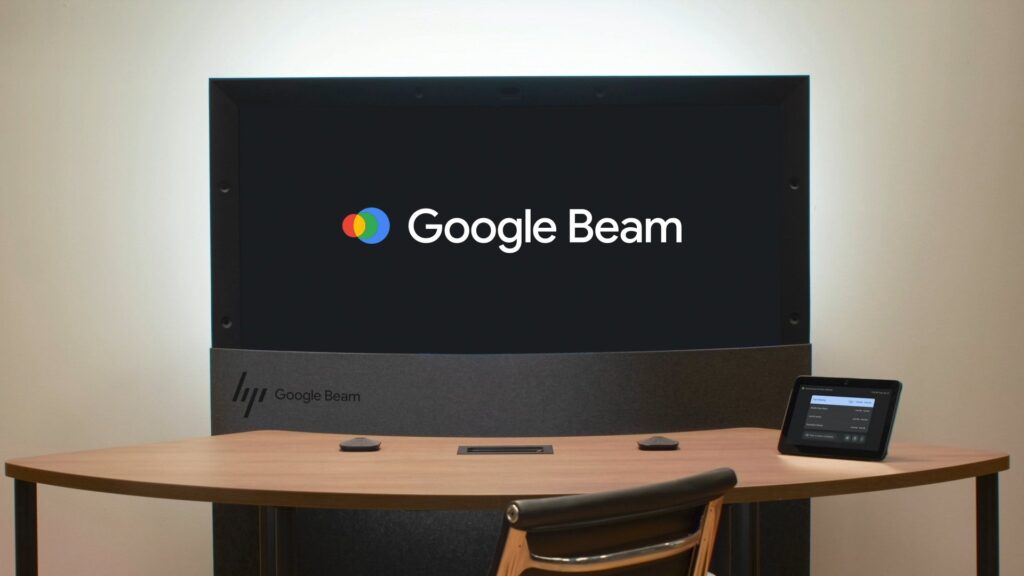
- Google Beam Takes Shape (formerly Project Starline): Google’s pioneering advanced 3D video conferencing technology, previously known as Project Starline, has been rebranded as Google Beam. It will soon be available for enterprise customers, with HP announced as a key partner for device development.
- AI Supercharges Google Workspace: As widely anticipated, AI-driven features and substantial updates for core Google Workspace tools like Gmail, Docs, Sheets, and Slides were announced. Gemini is set to play a central role in significantly enhancing productivity across these essential applications.
Focusing on the Developer Experience
Throughout the entirety of I/O 2025, Google consistently reiterated its unwavering commitment to supporting the global developer community. The event offered a rich tapestry of engaging keynotes, in-depth technical sessions, hands-on workshops, interactive codelabs, and comprehensive learning pathways, all made available both live and on-demand for maximum accessibility. Registration for the online experience also provided attendees with personalized content recommendations and timely email updates.
Peering into the Horizon
Google I/O 2025 has painted a vivid and compelling picture of Google’s AI-first trajectory. While specific hardware announcements were less prominent this year, the strategic focus was unequivocally on the software, tools, and platforms that will empower developers worldwide to build the next generation of intelligent, adaptive, and transformative experiences across an ever-expanding multitude of devices and diverse contexts. The relentless evolution of Gemini, the determined push into the immersive realm of XR, and the ongoing refinement of core platforms like Android, Web, and Cloud signal an incredibly exciting, albeit increasingly sophisticated, landscape for developers operating within the dynamic Google ecosystem.
References
- Google I/O Blog Post
- Google Beam
- Speech Translation integrated in Google Meet
- Project Astra
- Google Flow

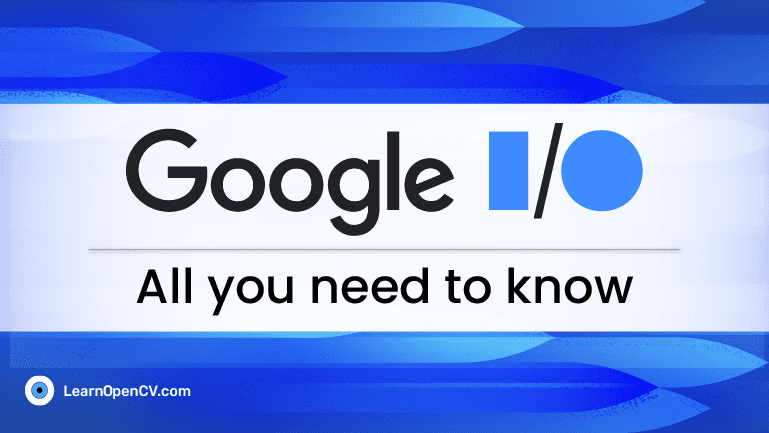
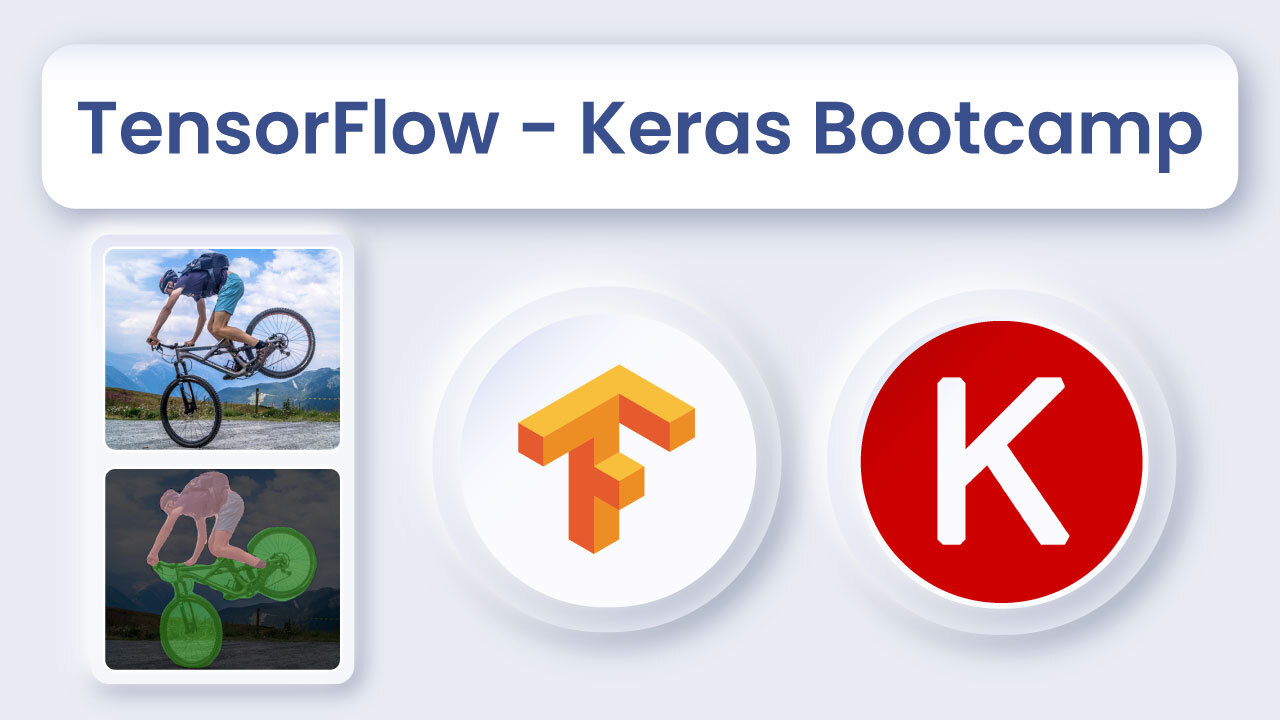
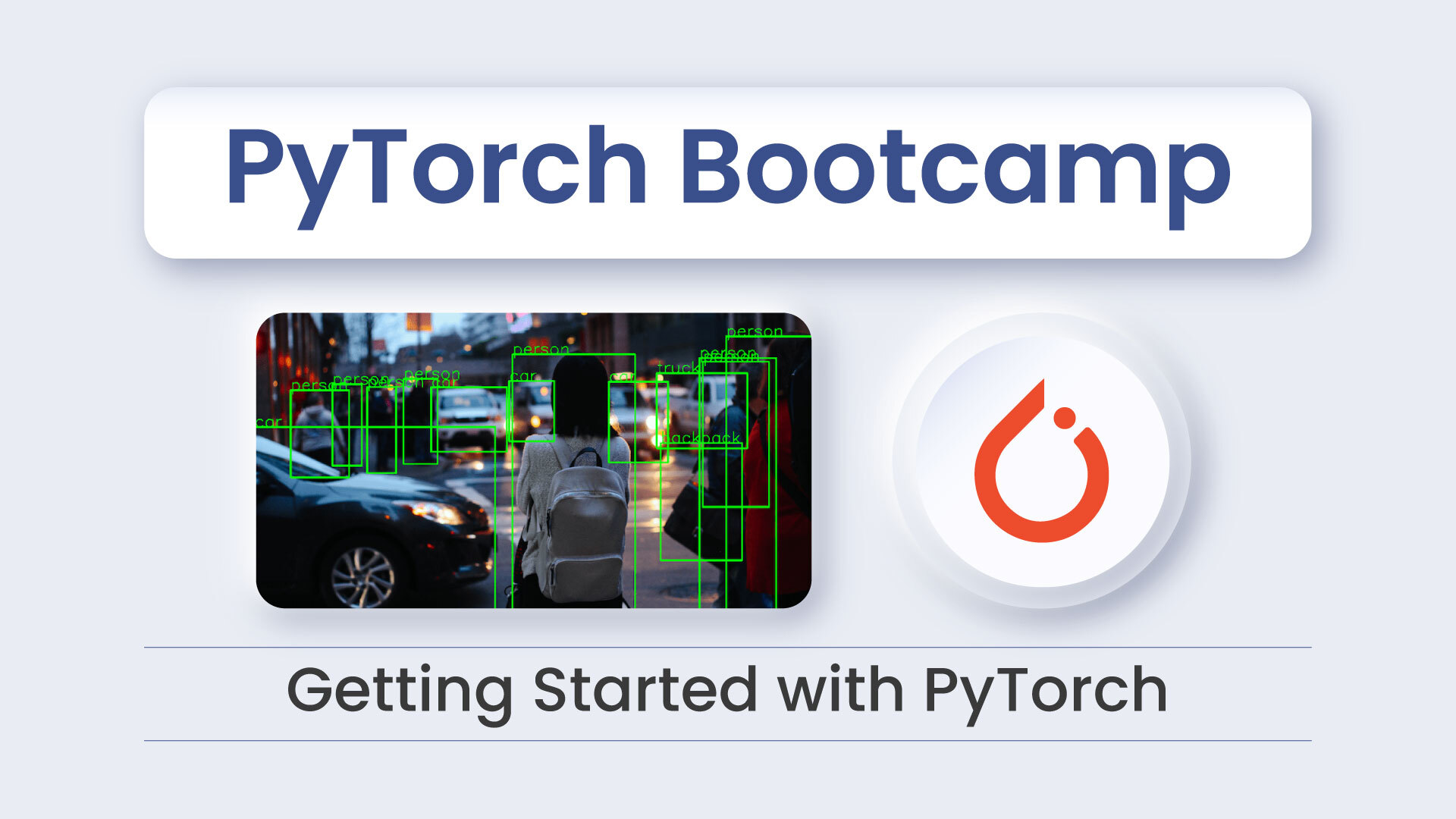
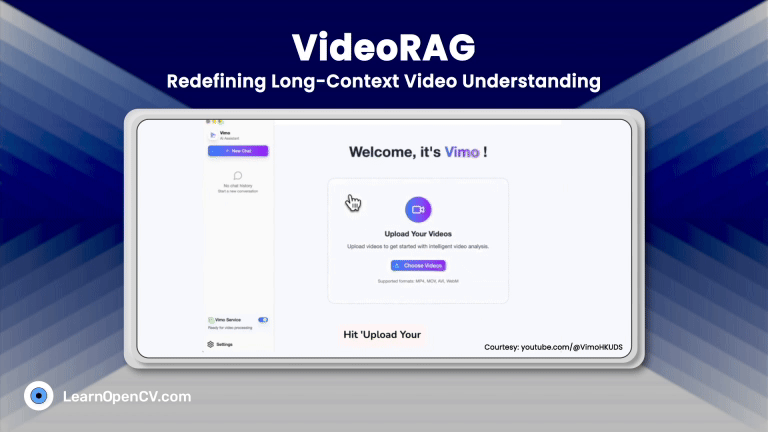
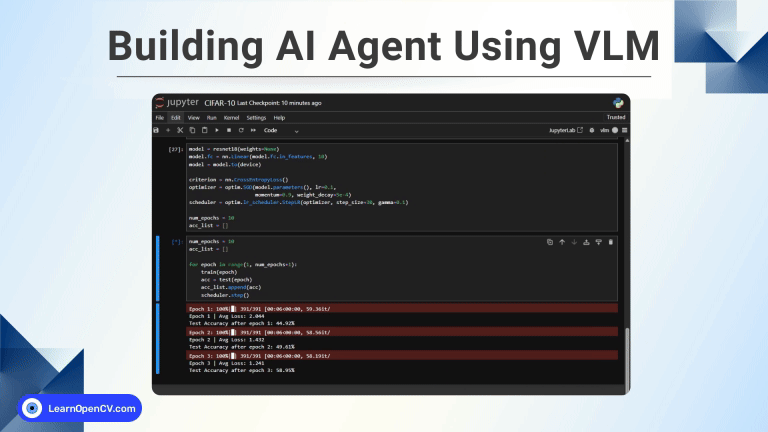

100K+ Learners
Join Free OpenCV Bootcamp3 Hours of Learning